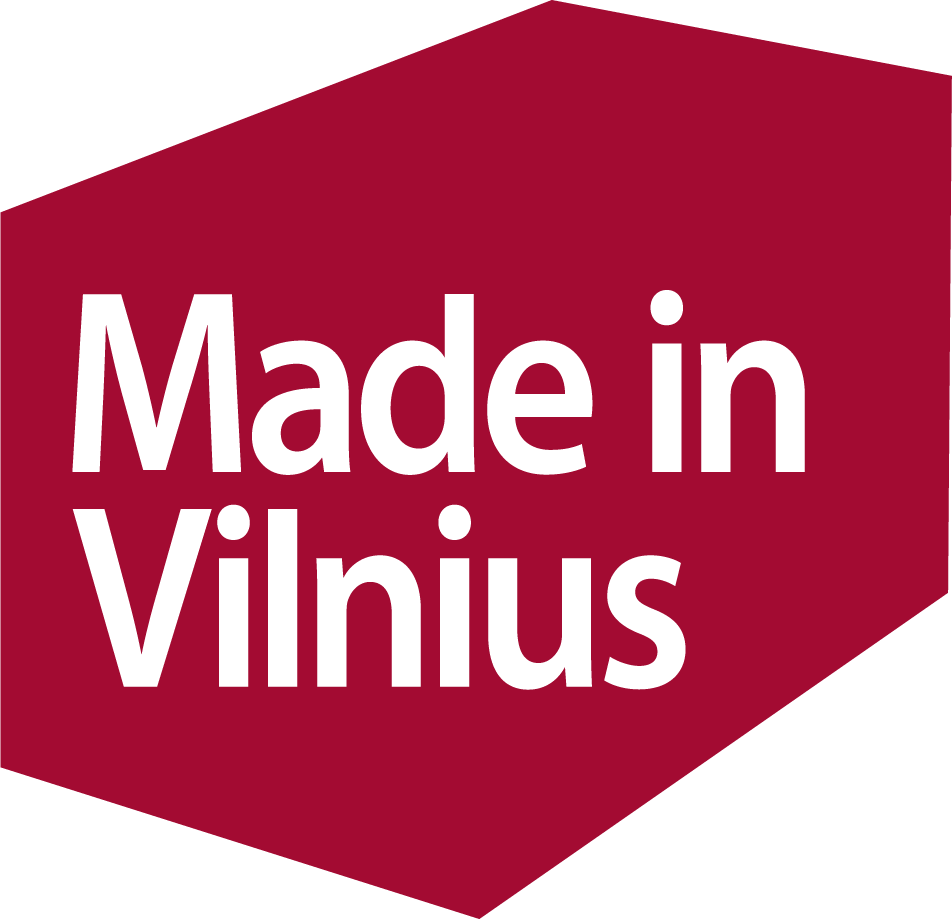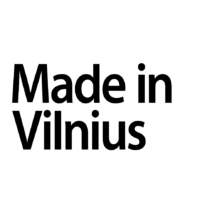2023 was a year of conservative, safe business planning for the startup ecosystem. Specialists interviewed by BNS claim that this year there will be more changes, transactions and investments in this market.
Minister of Economy and Innovation Dawn Armonaitė emphasizes that up to 10 Lithuanian companies that already want to accelerate growth with investments in Lithuania could become "unicorns" - these are private companies founded after 1990, whose value has exceeded 1 billion. euros. However, these companies are still growing only from their own capital.
"Maybe 2023 was not a record year, but we are heading in the right direction, over 10 billion. The value of our startups is EUR. If we look in general, in retrospect, in a few years that value has increased almost 17 times, and maybe even more," the minister said to BNS.
Matas Ignatavičius, Vice President of Development and Acquisitions and Mergers of the Tesonet Group, which manages the NordVPN and Surfshark VPN brands, says that he noticed that in the face of great economic uncertainty, Lithuanian startups stood out for their ability to grow on their own, rather than from investments.
Inga Langaitė, head of the Lithuanian start-up association Unicorns Lithuania, predicts that a higher growth of start-ups can be expected in the second half of this year. In addition, according to her, venture capital funds promise that there will be at least two larger investment deals in startups already in the first quarter of this year.
In 2023, Lithuania stood out in the European context
According to the report published last November by the venture capital company Atomico, the volume of investments across Europe decreased or remained unchanged until September 2023. Only a few countries bucked this trend – Lithuania, Romania and Luxembourg were the only ones where total invested capital increased in the year to last September.
According to Unicorns Lithuania, the total amount of investments in startups in Lithuania in 2023 reached 272 million. EUR - 7 percent. less than in 2022.
In 2023, compared to 2022, venture capital investments attracted by start-ups in the European market should decrease by almost half - to 41 billion. euros, when startups attracted 75,4 billion euros last year. euros, according to Atomico.
In Europe, by the end of October 2023, the fewest new "unicorns" have also been established in a decade - just seven, when, for example, in 2021, 107 companies reached a billion valuation.
The market participants interviewed by BNS agree that Lithuania has shown exceptionality here - the country's business has not been spoiled by the availability of capital so far, companies have not been overvalued in transactions, most start-ups do not grow their businesses from external investments, but from profit.
"When financial markets collapsed in early 2022, war in Ukraine and it was just clear that hard times were coming, a very large number of those startups that until recently were focused on growth at any cost, they re-strategized so quickly. (…) That failure, the unavailability of capital, determined that we were not too spoiled, too overvalued, there was no over-inflated value before that difficult period, so those pitfalls did not happen", explained I., head of Unicorns Lithuania to BNS. window
Tesonet Group Vice President M. Ignatavičius believes that the year 2023 has shown the strength of the country's ecosystem, what sets it apart from the rest of the world - five years ago there was not much venture capital in the country, which usually finances early-stage start-ups, at that time abroad, even in Estonia, that capital was more readily available.
"That led to startups looking for it in our market." product market (marketplaces where products are sold directly to the user - BNS) from day one and they have been are bootstrapped (when a company with small capital grows from its profit - BNS)", said M. Ignatavičius.
"Lithuania became the way it is partly because of this spotlight (focus on BNS), because there are a lot of such companies here," he added.
The largest investments are 100 million each. JAV dollars (91 million euros at today's exchange rate) - in 2023 attracted cyber security product developers Nord Security and Surfshark and solar park design software startup PvCase.
In addition, 55 million US dollars (51 million euros) were also attracted last year by the US startup "CastAI", which has an engineering center in Vilnius, and is developing a cloud platform based on artificial intelligence.
A. Armonaitė emphasized that it is extremely important to pay attention to Plug & Play, the US startup accelerator that established a branch in Vilnius last November.
"We managed to achieve a very big and hitherto unseen thing - to attract an international accelerator to Lithuania, which means that the international Plug & Play program originating from Silicon Valley will start in Lithuania from next year. (…) Now (Lithuanian startups - BNS) will also have access to the global and international know-how of corporations and, finally, that more global situation," said A. Armonaitė.
Uranikas Begu, head of the Eastern European region of Plug & Play, said in an interview with BNS in October that the five-cycle start-up acceleration program planned to be implemented in Lithuania within three years will help to breed more "unicorns".
According to the agreement, the US company will invest 5,9 million. EUR to at least 45 startups - by March 2026, it will implement five acceleration cycles, each of which will involve 10 to 15 selected startups, and at least 60 businesses will be grown in total.
In 2024, startups will be bolder, investments will increase
According to Atomico data, Estonia has the most unicorns per million inhabitants in Europe (4,5), while Lithuania is in 13th place (0,7). Currently, two companies have the status of "unicorn" in Lithuania - "NordSecurity" and "Vinted".
The Ministry of Economy and Innovation, based on the data of the data provider "Dealroom", in February 2023, also declared classifieds portals as "unicorns", including skelbiu.lt, the Baltic Classifieds Group, but based on international criteria, this company cannot be considered a unicorn. unicorn, because the group is listed on the London Stock Exchange from 2021, and such companies are not considered "unicorns".
According to A. Armonaitė, there could already be many more "unicorns" in Lithuania, but due to the companies' desire to grow sustainably - from profits, not investments - their value is not assessed and they do not officially receive such a status.
"Some Lithuanian companies are really close to the so-called "unicorn" status, but it is natural that they plan for that growth in a sustainable way. (…) I am sure that quite a few of those future "unicorns" are already grazing in the fields of our Lithuania, I would say up to 10 at the moment and there will be more in the next few years", A. Armonaitė assured.
I. Langaitė emphasized that "for most startups, the status of a unicorn is not a goal in itself, it is simply a natural consequence of that successful growth", and most of the candidates for unicorns are profit-growing companies that do not seem to need external investment.
"However, venture capital fund companies promise that in the first quarter of 2024, we can see at least two larger investment deals in startups in Lithuania," said I. Langaitė in the Unicorns Lithuania announcement.
Because of this, the manager of Unicorns Lithuania believes that startups will plan business growth more boldly this year, "unicorns" may also appear in Lithuania, and bigger breakthroughs will occur in the second half of the year.
"It is possible that the beginning of the year will be more difficult, like any other business, because we simply still have that uncertainty and high interest rates in the economy, but as economists say, in the second half of the year we will probably see some signs of recovery and that I'll probably see you in startups very soon," I. Langaitė told BNS.
"Start-ups see that there is not one crisis, but crisis after crisis and such a marathon of crises, and like everyone else, they have adapted to the conditions of economic uncertainty and it is precisely in these conditions that they have become accustomed to work," she concluded.
M. Ignatavičius added that the greater interest of foreign investment funds in the Lithuanian ecosystem is already visible.
"Foreign investors and late-stage investors are discovering that Lithuania, success stories like PVcase, the same NordVPN, probably put us more and more on the map of those investors and they are perhaps less afraid of this region and know it better," said Vice President of Tesonet Group.
The average amount of investments in startups in 2023 reached 10 million. EUR - 20 percent. more than in 2022 (8 million euros) and 30 percent. more than in 2021 (7 million euros).
Artificial intelligence is changing the startup ecosystem
The company "OpenAI", which launched the chatbot "ChatGPT" on November 2022, 30, particularly interested the world in the possibilities of artificial intelligence (AI) - in 2022, the investment in AI in Europe was a record - 8,6 billion. the amount of US dollars (7,8 billion euros).
Nevertheless, according to Atomico data, in 2023 the AI ecosystem matured and calmed down - investments in Europe decreased by 67 percent. up to 5,8 billion dollars (5,3 billion euros).
According to I. Langaitė, the popularity of AI has significantly changed the start-up market - the majority of companies had to apply this technology in their products, some had to change the nature of work, AI also has a great influence on low-skilled workers.
"We already hear today that this is really changing the labor market as such and the businesses themselves. Let's say that more than one startup has said that in the field of customer service they are already using artificial intelligence in that process, which means that fewer such people will be needed", said I. Langaitė.
"For some startups, even the question of the business model arose, whether their niche, which they have occupied so far, will not be taken over by artificial intelligence. (…) The year 2023 was already about AI, this year will only be more so," she added.
According to the manager of "Unicorns Lithuania", in 2024, a trend may become particularly evident when companies are redistributing employees, fewer unqualified and more highly qualified employees will be needed: "There will be more focus on performing that creative, strategic and qualified function".
M. Ignatavičius added that in 2023, a large number of businesses applied AI without fully understanding how useful it is, whether it will not be easy for other companies to replicate the same service, so in 2024, a trend may begin to emerge when AI technology is removed from the offered product.
"There's a whole new wave of startups that are trying to monetize certain AI functions, so it's going to be very interesting to see how the market mature (maturing - BNS). There are really many at the moment hyping (inflated buzz, interest - BNS) around all this but some of those models just try on those Keyword (keywords - BNS) to go, play on that AI, and to what extent these are sustainable businesses in the long term and to what extent they are unrepeatable by competitors, it will be necessary to find out here," he said.
"Each decade probably has something new trend (trend, fashion - BNS), which makes some technology available for wide use, for a circle of people", concluded M. Ignatavičius.
Startups are expanding faster than the ranks of skilled professionals
According to Unicorns Lithuania, the number of employees in the Lithuanian startup ecosystem grew by 2020 percent in three years (from 178). up to 17,8 thousand (as of December). Still, the association's website alone had more than 420 ads for new hires at the start of January.
According to I. Langaitė, a trend can be seen both in Lithuania and in the world, when extremely fast-growing start-ups can no longer find people with suitable qualifications. According to her, the fight for them takes place not only internally, but also between countries, so for Lithuania, as an economy that cannot offer much entertainment or opportunities, it is extremely important to develop the infrastructure so that foreigners can integrate as comfortably as possible.
"Actually, there is still too little English in our institutions, and not all the staff speak English, but there is also little English on the pages themselves. (…) What would really help us to have more specialists is to have information (on the websites of state institutions - BNS) not only in Lithuanian," she emphasized.
According to her, the facilitation of migration procedures and the implementation of the digital nomad visa would especially help Lithuanian startups. digital nomads visa - permission to work in the country without living there), abolition of the progressive GPM rate for high income earners, revision of taxation of employee benefits.
"However, you have to admit that there have been some positive changes in the last few years, same thing International House Vilnius (the institution where foreigners who have come to Lithuania can handle most of their documents in one place - BNS), that one-stop shop principle", explained I. Langaitė.
A. Armonaitė emphasized that a lot has already been done, but it will create value in the longer term.
"This year, Lithuania became the first country on the continent to start teaching digital entrepreneurship to children very early, from the fifth grade. Of course, not all schools participate in it yet, but we are starting with a dozen in Lithuania, we are the first in the world. (…) We are working on the "Work in Lithuania" project, it continues to be actively developed. The most important thing is the education system, that's where we cultivate talents, attract and retain them," the minister told BNS.
According to "Unicorns Lithuania", startups actively operating in Lithuania paid 203 million in the third quarter of 92. EUR taxes - 15 percent. more than a year ago. The average salary of their employees was 3,8 thousand. EUR (before taxes) - 12 percent. (400 euros) more.
All startups operating in Lithuania attracted 2022 million in 293. euros, in 2021 – 429 million. EUR (of which EUR 250 million - the first Lithuanian "unicorn" Vinted), in 2020 - EUR 43 million. euros, in 2019 – 170 million euros.
According to Dealroom, the Lithuanian startup ecosystem is currently valued at 9,5 billion. euros.
The author is Goda Vileikytė


